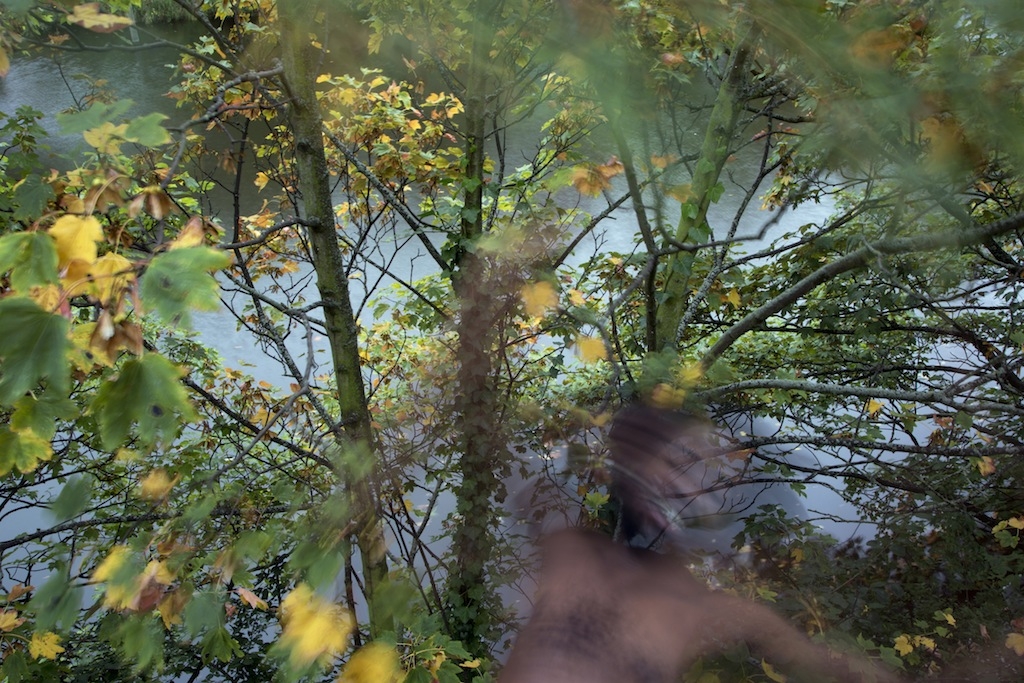Selected by Bonaventure Soh Bejeng Ndikung
Remember when uncle Amiri Baraka talked about thought being more important than art and then he went on to say that ‘to revere art and have no understanding of the process that forces it into existence, is finally not even to understand what art is?’ Well, if uncle Baraka had, before his passing on, met the young Cameroonian artist Em’kal Eyongakpa (born in 1981), the former – a poet, critic and activist would have found in the latter – an artist, poet and performer – a creator whose thought forms and deliberations, processes and encounters, and experiences, agonies, endurances and felicities stand at the core of his artistic practice. Inasmuch as Eyongakpa’s experiences and processes are his, he is a direct reflection of his society, which is to say he is the singular that reflects the plural, as Jean-Luc Nancy would have put it; or in more scientific terms, Eyongakpa is that black body that at the same time is as good an absorber as it is a good emitter of energy. In this process, Eyongakpa’s thoughts, which are indeed a sphere of human thoughts, the noosphere, are translated into photography, video, sculpture, sound, text and embodied in performances, that one might choose to call art or just containers of ideas.
Like many artists of his generation and from the part of the world where he comes from, Eyongakpa is interested in historical narrations, in what is told and what is left out of the picture, and why. But he is especially interested in what stays or has stayed in collective and transgenerational memories, in ritualistic practices, and what has been passed over generations through performativity and corpoliteracy, rather than what has been canonised or sculpted in the history books and encyclopaedias. In other words, he is not interested in those collective mediums, which Mutabaruka summarises in his 1987 Dub song Dis Poem as ‘the Bible, your prayer book /Playboy magazine, New York Times, Reader’s Digest /, the CIA files, the KGB files.’
It is fair to say that in his quest to understand the thoughts and processes that force themselves into an existence called art, Eyongakpa practices some kind of epistemological disobedience, bringing to the fore some of those things that were once considered irrational and ungodly (eg, sorcery) and juxtaposing them with common media considered to be within the realms of the rational, thereby perverting such obvious margins between reality and surreality.
Eyongakpa’s upcoming work for the São Paulo Biennial places a spotlight on fungi-culture, especially mycelial farming in contemporary time-based art, tracing an arc between his autochthonous epistemological systems and imported Western knowledge systems.
Trained as a botanist and ecologist, Em’kal Eyongakpa has exhibited in institutions and biennials including Kadist, Paris (2015), DRAF, London (2015), SAVVY Contemporary and NBK, Berlin (2014), esc_Videobrasil, São Paulo (2013), Whitworth Art Gallery, Manchester (2012), Dak’Art 2012: Prospects and Challenges), and Bamako Encounters 2011.
This article was first published in the January & February 2016 issue of ArtReview.
